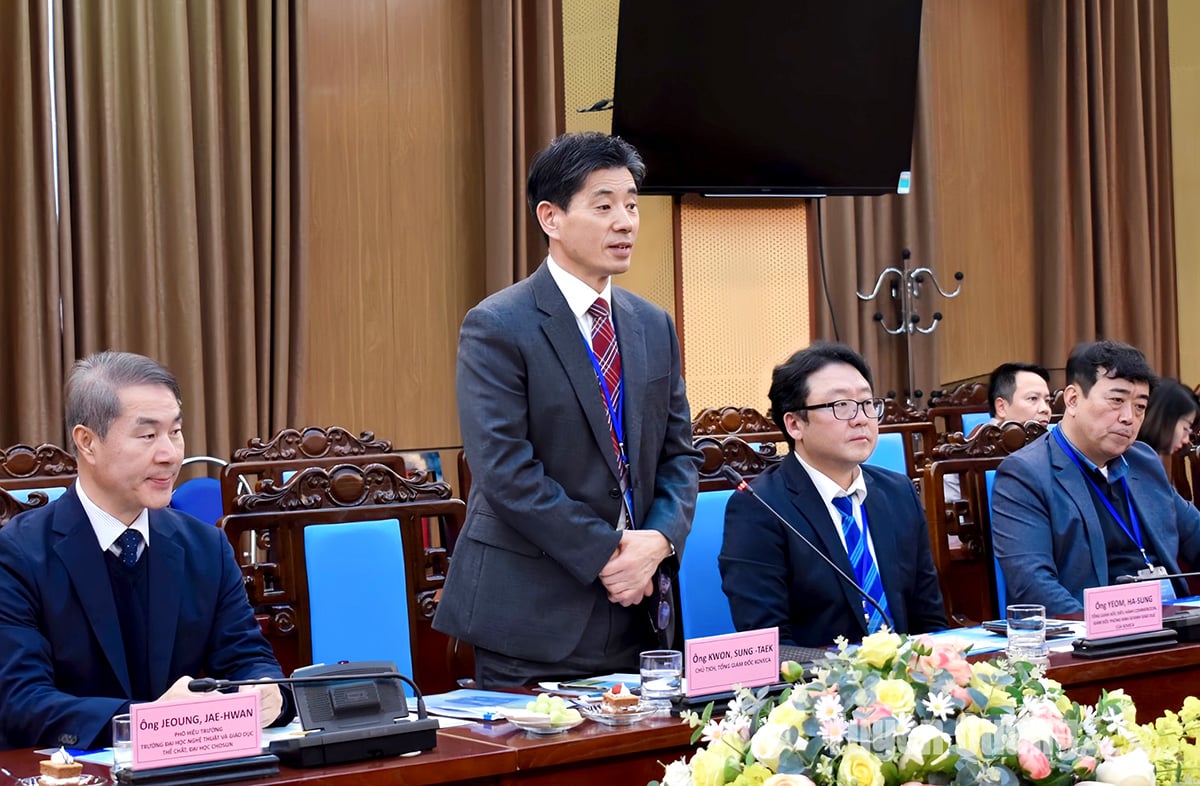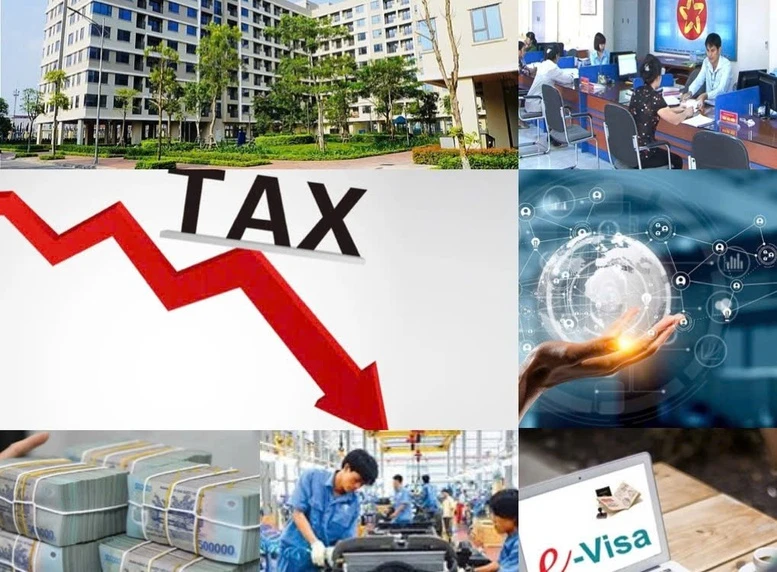Businesses cry in the whirlpool of procedures - Part 5: Don't let businesses and investors "fall ill"
Regarding the hot issues that many projects are facing, such as slow land price determination, planning adjustment, waiting for the government to "correct" previous mistakes, which erode the "health" and trust of businesses and investors, a number of lawyers and experts have shared their perspectives and proposed solutions.
 |
 Investors have the right to complain or sue to claim their rights.
Investors have the right to complain or sue to claim their rights. 
- Lawyer Le Ngoc Doan, Da Nang City Bar Association
The adjustment of land lease term from 70 years to 50 years must comply with the provisions of Clause 3, Article 106, Land Law 2013.
In case of adjusting the land lease term but not complying with the provisions in Clause 3, Article 106, Land Law 2013 and causing damage to the land lessee, the responsibility belongs to the competent state agency on land management, in this case, the provincial People's Committee.
For land leases that do not comply with the provisions of Clause 3, Article 126, Land Law 2013 and when adjustments do not comply with the provisions of Clause 3, Article 106, Land Law 2013, the responsibility belongs to the competent state agency.
Investors whose rights and interests are violated and who suffer damage may file a complaint or file a lawsuit with a competent people's court to claim their rights.
 |
 Investors need to provide specific evidence to prove the damage.
Investors need to provide specific evidence to prove the damage. 
- MSc. Pham Ho Hoang Long, Director of An Thanh Consulting and Investment Company Limited
According to Article 126 of the 2013 Land Law, only projects with large investment capital but slow capital recovery, investment projects in areas with difficult socio-economic conditions, areas with especially difficult socio-economic conditions that require a longer term, the land allocation or lease term will be greater than 50 years, but not more than 70 years.
Thus, for coastal tourism projects that have been leased land by the government for 70 years, then adjusted to 50 years, investors need to provide specific evidence to prove the damage caused by the delay in waiting for adjustment, loss of investment opportunities, etc., to have a basis to request compensation from the state management agency.
Regarding land prices, the Government has just issued Decree No. 71/2024/ND-CP, effective from the effective date of Land Law No. 31/2024/QH15. However, there are still some issues that have not been clearly regulated in this Decree. For example, regarding technical infrastructure costs in surplus valuation, it is very difficult to appraise the estimate before valuation.

 Whenever the government makes a mistake, it "fixes it", but who is responsible for the losses suffered by investors?
Whenever the government makes a mistake, it "fixes it", but who is responsible for the losses suffered by investors? 
- Mr. Nguyen Van Dinh, Chairman of Vietnam Real Estate Brokers Association, Vice Chairman of Vietnam Real Estate Association
In previous years, many coastal tourism projects, although using commercial service land, were leased land for up to 70 years by the authorities of some provinces and cities in the Central region, then adjusted down to 50 years. This adjustment took a long time, causing many difficulties for businesses.
Of course, in the past, the law also had provisions on this issue, but the intervention to prevent it was not drastic. Not to mention, some legal regulations still have many loopholes, contradictions, and overlaps, leading to inconsistent understanding and enforcement of the law, each locality has a different way of doing things.
In some places, inspectors step in to review and detect violations, followed by the process of explanation and handling, creating stagnation in the development and implementation of local economic development planning and strategies.
According to our statistics, there are currently more than 1,000 projects nationwide that have been stopped for review, pending processing or awaiting new regulations to resolve. Among them, many projects show signs of lax state management.
If the government applies it incorrectly, it must be held responsible, and may even be subject to criminal prosecution. However, up to now, no case has been brought up for “review” to clearly analyze how the government’s mistakes have caused damage to businesses and people.
For example, in the recent past, some localities issued certificates for resort tourism projects. Customers used them as a basis to decide to buy the products. When the inspectors got involved and concluded that the issuance of the certificates was against the regulations, the authorities “corrected” it by revoking or adjusting the issued certificates.
If the government makes mistakes, it “fixes them”, but who is responsible for the losses suffered by investors and customers? If this is not resolved, it will lead to people filing complaints and lawsuits against investors at many levels, causing social instability, especially losing the trust of investors and people in the legal system and government agencies.
In my opinion, there should be regulations, in addition to handling violations against those who have committed them, the government must always be ready to dialogue and find solutions, even compensate for wrong decisions. And to prevent further violations, one of the important things is to consider and appoint officials very carefully, and evaluate and screen them thoroughly.
The newly issued regulations related to land are superior, more synchronous and uniform. We believe that clear regulations will limit mistakes, creating "barriers" that make it impossible for officials to make mistakes.
 |
 Legal regulations need to be consistent.
Legal regulations need to be consistent. 
- Lawyer Le Cao, FDVN Law Firm
Of the four methods for determining land prices, the surplus method is the method implemented by taking the total estimated development revenue minus the total estimated development cost of the land plot or land area based on the most effective land use according to the land use plan and detailed construction plan.
According to the provisions of Article 158 of the 2024 Land Law and the guidance in Article 6 of Decree No. 71/2024/ND-CP, basically, taking the total estimated development revenue minus the estimated development costs will give the profit.
But in reality, costs are not just the cost of developing a real estate project, or the value of forming a real estate asset. Many opinions are concerned that, if profit is understood as the total development revenue minus the total development cost, then the original value of forming land use rights is not calculated, only the cost starting from the development investment stage is calculated, not the capital to buy land, not the land use fee to be paid, leading to a very large formal profit. The larger the formal profit, the higher the tax and fee, leading to low actual profit, or even possible loss. Accordingly, to ensure profit, businesses will push up real estate prices. This is not beneficial for home and land buyers, and at the same time pushes the market into a spiral of instability because the price is not realistic.
Those concerns, in my opinion, are very concerning. With the surplus method whose calculation is stipulated in Article 6, Decree No. 71/2024/ND-CP, which has just been issued, although there are detailed regulations to replace the regulations in Clause 8, Article 1, Decree No. 12/2024/ND-CP (supplementing Article 5d, Decree No. 44/2014/ND-CP), it is still not possible to resolve the requirement of bringing land prices closer to actual value, because the profit value is pushed up virtually, as I have just analyzed.
Although there are quite specific regulations on determining land prices, in reality, this issue is still very confusing. Many valuation organizations still have the mentality of "avoiding" valuation related to public assets and land related to projects using the budget, for fear of being held responsible if they make mistakes.
Therefore, land valuation is not only about determining the price, but also about clearing the legal flow for the real estate market. When the issuance of land use right certificates, compensation for site clearance, and completion of land financial obligations are completed, then the following legal issues will move forward.
With the current problems, in my opinion, there should be specific solutions as follows:
Firstly, in addition to Decree No. 71/2024/ND-CP, when drafting other decrees guiding the 2024 Land Law, the 2023 Real Estate Business Law, the 2023 Housing Law, etc., it is necessary to include specific and detailed guidance regulations with consistency to be able to control real values in the real estate market, including synchronous solutions to systematize honest data on real estate in general and real estate value in particular, including land use rights value. Determining the correct land price requires consistency in the provisions of legal documents related to real estate.
Second, Article 8 of Decree No. 71/2024/ND-CP stipulates factors affecting land prices, which is an important new content for the land valuation process to determine specific issues. This issue is "optional" when implemented, therefore, specific regulations and land valuation activities in localities must have consistency in considering conditions and standard data to use methods to determine land prices in practice in a scientific and accurate manner, reflecting the true value of land use rights according to market reality.
Third, it is necessary to make a concerted effort to implement new legal regulations on land, real estate, and housing in a systematic, consistent, and drastic manner so that these laws can be effectively implemented in practice. Land prices are determined and maintained appropriately, reflecting the true value of the market, and are not subject to the influence of legal regulations on investment, planning, business conditions, transaction conditions, and other regulations of different legal documents. When these regulations are effectively implemented, the real estate market operates according to market rules, and real estate prices also return to reality.
INVESTOR DEMANDED TO SUE THE PEOPLE'S COMMITTEE OF DA NANG CITY
On June 28, 2024, Hoa Binh Company Limited sent a notice to the owners of the Da Nang Golden Bay Project (also known as the Da Nang Green Peace Complex Project, or Hoa Binh Green Da Nang) stating that on June 5, 2024, the Company sent Official Dispatch No. 212-2024/CV-HB to the Chairman of the Da Nang City People's Committee requesting a response regarding the issuance of apartment ownership certificates at the Da Nang Golden Bay Project. If by June 30, 2024, the Da Nang City People's Committee does not have a response, the Company will file a lawsuit.
It is known that as of July 3, 2024, the People's Committee of Da Nang City has not yet had an official response and Hoa Binh Company Limited said that they will file a lawsuit as stated.
Source: https://baodautu.vn/doanh-nghiep-khoc-rong-trong-vong-xoay-thu-tuc---bai-5-dung-de-doanh-nghiep-nha-dau-tu-do-benh-d219299.html



![[Photo] Looking back at the impressive moments of the Vietnamese rescue team in Myanmar](https://vstatic.vietnam.vn/vietnam/resource/IMAGE/2025/4/11/5623ca902a934e19b604c718265249d0)
![[Photo] "Beauties" participate in the parade rehearsal at Bien Hoa airport](https://vstatic.vietnam.vn/vietnam/resource/IMAGE/2025/4/11/155502af3384431e918de0e2e585d13a)



























![[Photo] Summary of parade practice in preparation for the April 30th celebration](https://vstatic.vietnam.vn/vietnam/resource/IMAGE/2025/4/11/78cfee0f2cc045b387ff1a4362b5950f)



























































Comment (0)